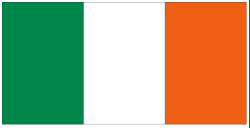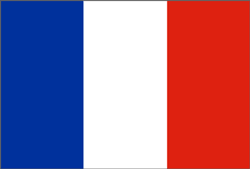 |
|
Students of the First Thirty
Years:
profiles compiled and presented
by
Daniel J. Fleischmann
 |
|
John Hemphill
Perhaps Dickinson's first "foreign" student,
he was born in Derry in Northern Ireland in 1761, and came to America at
the close of the Revolutionary War.1 A graduate in 1792,
Hemphill settled in South Carolina, where he was a pastor.
Francis and James Pringle
These two brothers came to America at the end of the eighteenth
century. They were probably the first foreign brothers to come to Dickinson
- James was born in 1788, Francis in 1789, though both graduated from Dickinson
in the same year, 1808. Both were pastors, licensed by the Philadelphia
Presbytery in 1812.2 Francis moved to Ohio, James to North
Carolina. Francis fell ill and in November of 1817, went to be with
his brother in North Carolina. Francis died in March of 1818, James
would die seven months later having laid sick in the same bed in which
his brother died. James, once certain of his coming end, requested
he spend his last moments alone, as he said a week before his death "I
would wish to converse with the Father, Son, and Holy Spirit.- "my whole
dependence is on
Christ. I look to him for salvation."3
|
2. Sprague's Annals of the American Pulpit, Vol. IX. p. 66-67. According to the Annals of the American Pulpit, it can be speculated that the Pringle family moved to America shortly before 1800. Their father apparently took a job as a pastor in Pennsylvania in that year, while a year before he took a job in New York, apparently shortly after arriving their from Europe. It could be assumed that they came in 1798 or 1799. 3.Harris, E., "The Christian's" Remembrances: A Sermon delivered in the Middle Creek Church, Mecklenburg, N.C., p. 91 |
|
|
 |
Claudius Berard
Perhaps the College's first foreign student
not from the British Isles, he was born in the French port of Bordeaux
and came to America in 1807. He left the student body at Dickinson
in 1812, as a non-graduate, but not the College. Even though
he did not graduate, he was a professor of modern languages at Dickinson
until 1815. He then went on to West Point to teach French, for the
next 33 years, until he died in 1848.
Claudius Berard left a brief historical record of his time at Dickinson
College.
As noted, while a student in 1810 he was appointed "Teacher of the
French, Spanish & Italian languages."1
on November 10th, 1810. Apparently, he was teaching and taking a
few courses simultaneously, until 1812, when he left, a non-graduate.2
He returned in 1814, and on September 28th, 1814, he was elected to the
faculty as a Professor of Modern Languages. He may have been the
first professor of Modern Languages at Dickinson, as Sellers claims on
Berard held "the first foothold of modern languages in the curriculum."3
In 1810 this advertisement was proposed to be published about Berard:
DICKINSON COLLEGE. The trustees anxious that this now
prosperous institution should further merit public
encouragement have engaged a gentleman of character and talents to teach
the French language. He has also
some knowledge of the Spanish. This acquisition, long wished for
. . . now forms a compleat system of education
at this Seminary. The next session of the College will commence on
the first of June ensuing.4
|
2. Morgan, James Henry, Dickinson College 1783-1933. Harrisburg, PA: Mt. Pleasant Press, 1933, page 198 It can be speculated that he did not graduate, because he was teaching, and took a few courses, but not receiving enough credits to graduate. 3. Sellers, page 144 The author claims this admits he could not fully verify this, though he could find no previous record of Modern languages being taught at Dickinson. 4. Morgan, page.198 This advertisement was proposed by the President of the Board to the President of the College, Benjamin Rush, May 7, 1810. |
For more information on Claudius
Berard and the international curriculum click here: IC